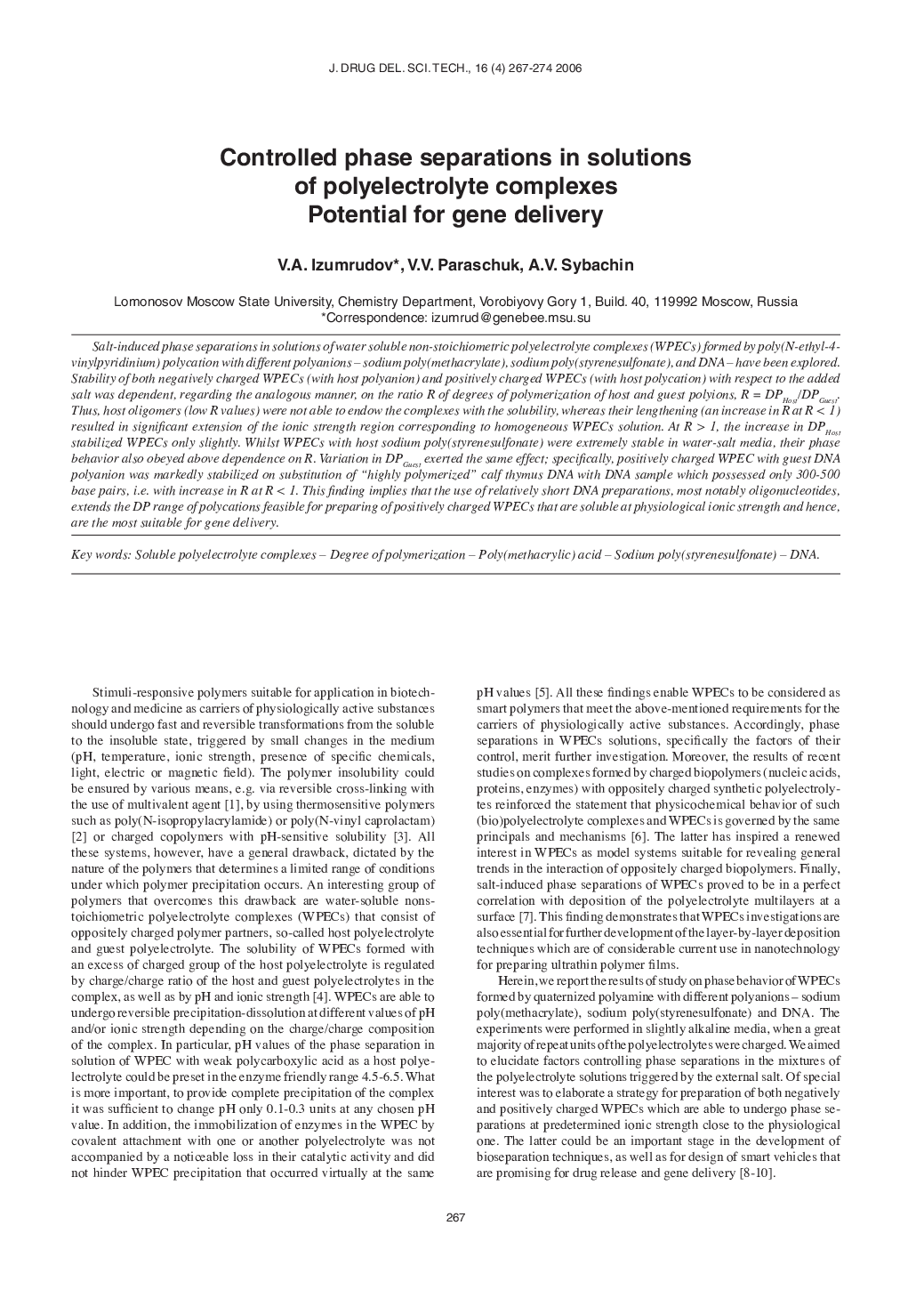| Article ID | Journal | Published Year | Pages | File Type |
|---|---|---|---|---|
| 2483859 | Journal of Drug Delivery Science and Technology | 2006 | 8 Pages |
Salt-induced phase separations in solutions of water soluble non-stoichiometric polyelectrolyte complexes (WPECs) formed by poly(N-ethyl-4-vinylpyridinium) polycation with different polyanions – sodium poly(methacrylate), sodiumpoly(styrenesulfonate), and DNA – have been explored. Stability of both negatively charged WPECs (with host polyanion) and positively charged WPECs (with host polycation) with respect to the added salt was dependent, regarding the analogous manner, on the ratio R of degrees of polymerization of host and guest polyions, R = DPHost/DPGuest. Thus, host oligomers (low R values) were not able to endow the complexes with the solubility, whereas their lengthening (an increase in R at R < 1) resulted in significant extension of the ionic strength region corresponding to homogeneous WPECs solution. At R > 1, the increase in DPHost stabilized WPECs only slightly. Whilst WPECs with host sodium poly(styrenesulfonate) were extremely stable in water-salt media, their phase behavior also obeyed above dependence on R. Variation in DPGuest exerted the same effect; specifically, positively charged WPEC with guest DNA polyanion was markedly stabilized on substitution of “highly polymerized” calf thymus DNA with DNA sample which possessed only 300-500 base pairs, i.e. with increase in R at R < 1. This finding implies that the use of relatively short DNA preparations, most notably oligonucleotides, extends the DP range of polycations feasible for preparing of positively charged WPECs that are soluble at physiological ionic strength and hence, are the most suitable for gene delivery.
